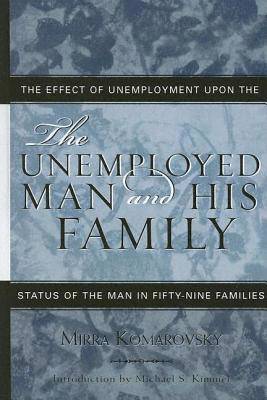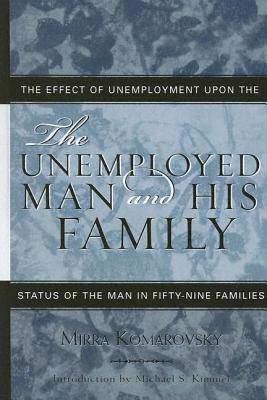
Bedankt voor het vertrouwen het afgelopen jaar! Om jou te bedanken bieden we GRATIS verzending (in België) aan op alles gedurende de hele maand januari.
- Afhalen na 1 uur in een winkel met voorraad
- In januari gratis thuislevering in België
- Ruim aanbod met 7 miljoen producten
Bedankt voor het vertrouwen het afgelopen jaar! Om jou te bedanken bieden we GRATIS verzending (in België) aan op alles gedurende de hele maand januari.
- Afhalen na 1 uur in een winkel met voorraad
- In januari gratis thuislevering in België
- Ruim aanbod met 7 miljoen producten
Zoeken
The Unemployed Man and His Family
The Effect of Unemployment Upon the Status of the Man in Fifty-Nine Families
Mirra Komarovsky
€ 254,45
+ 508 punten
Uitvoering
Omschrijving
In The Unemployed Man and His Family, noted sociologist and feminist Mirra Komarovsky poses the question: what happens to the authority of the male head of the family when he fails as a provider? Between 1935 and 1936, Komarovsky interviewed 59 families in 1935-36 in which the male had been unemployed for at least a year. Interestingly, in many cases, the husband's struggle in the economic sphere did not offset the solidity and happiness of the marital relationship. But unemployment seems to have affected the men's sense of their own position as head of household and providers. For one thing, it undermined their sense of themselves as breadwinners. Most found it unbearably humiliating to accept relief. Perhaps her most important finding-which still resonates today-was that those men who thought of themselves exclusively as providers suffered far more than those who had developed alternative identities as father and husband.
Specificaties
Betrokkenen
- Auteur(s):
- Uitgeverij:
Inhoud
- Aantal bladzijden:
- 186
- Taal:
- Engels
- Reeks:
- Reeksnummer:
- nr. 9
Eigenschappen
- Productcode (EAN):
- 9780759107311
- Verschijningsdatum:
- 1/10/2004
- Uitvoering:
- Hardcover
- Formaat:
- Genaaid
- Afmetingen:
- 152 mm x 229 mm
- Gewicht:
- 444 g

Alleen bij Standaard Boekhandel
+ 508 punten op je klantenkaart van Standaard Boekhandel
Beoordelingen
We publiceren alleen reviews die voldoen aan de voorwaarden voor reviews. Bekijk onze voorwaarden voor reviews.









